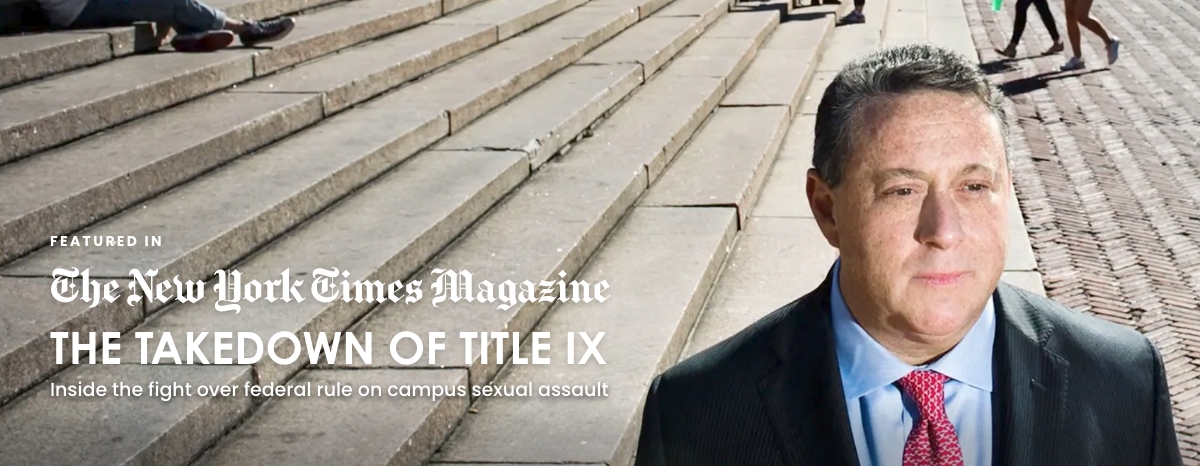Protecting your rights
We are recognized as the leading law firm representing those accused of misconduct
Clients hire us for the personal attention, hard work, street smarts, and excellent value we bring to each case. We are both nimble and tenacious. By leveraging our uncompromising experience in every aspect of our practice, we provide fierce, savvy representation for high-profile matters.
No one protects your rights and your future better than we do. Call us at 212-736-4500 or email us for a consultation and you can expect to hear from us within two hours.
LEARN MORE
At Nesenoff and Miltenberg, we bring hands-on experience, intellectual heft, legal and business acumen, and strong commitment to the table. We partner with our clients so that our solutions are tailored to meet their needs and goals.
OUR EXPERIENCED TEAM WILL ADVOCATE TIRELESSLY FOR YOUR RIGHTS
In the news
THE NEW YORK TIMES - THE DAILY PODCAST
The winning legal strategy could change the dynamics for the era.
Case Studies
We are nationally recognized as the leading law firm for representation of college, university, and private school students and faculty facing allegations of misconduct. No one will protect your rights and your future better than we will.
Academic Integrity
In March 2021, Dartmouth’s Geisel School of Medicine was rocked when 17 students were charged with cheating based on the school’s review of their online activity on a learning management system.
University
When a Columbia University student felt the university mishandled her allegations of rape against a fellow student, she turned her feelings into an art project—a very public one.
University
When a Penn State pre-med student was accused of sexual assault, a three-member Title IX panel found he violated the Student Code of Conduct and subsequently suspended him from classes..
Faculty
When a Berklee College student alleged her professor sexually harassed her, he was suspended and permanently banned from using school facilities for anything not related to teaching.


